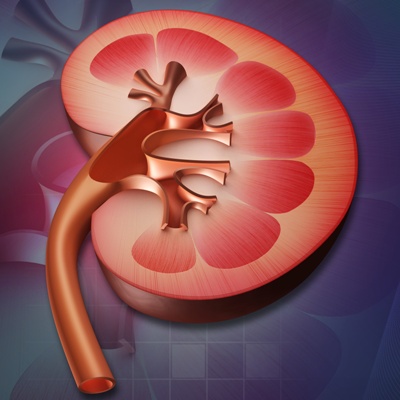April 24, 2023 -- The discovery of a variant of an inflammatory gene that protects the kidneys in mice could unlock more personalized approaches to the treatment of humans.
Writing in the journal Kidney International, researchers at the Garvan Institute of Medical Research, University of New South Wales, Sydney and Westmead Hospital in Australia describe their analysis of the role variants of the gene TNFAIP3 play in kidney disease.
Currently, physicians know that acute kidney injury, a condition that is partly driven by inflammation, is a risk factor for progression to chronic kidney disease, but lack the tools to determine whether a patient is likely to recover or develop long-term problems.
TNFAIP3 encodes A20, a protein that acts as a brake on inflammation. Genetic variants that reduce the function of the enzyme are associated with heightened protective immunity and autoimmune disease, but their role in kidney injury was unknown prior to the Kidney International paper.
The paper describes the identification of a series of unique human TNFAIP3 coding variants that reduce the anti-inflammatory function of A20. While the role of inflammation in acute kidney injury may imply that reducing the activity of A20 would have negative effects, the study found the opposite.
While acknowledging that more work is needed, the researchers see the finding as a step toward the development of diagnostic tools that can help predict which patients are likely to have ongoing health problems after suffering kidney injury. In theory, a genetic test that determines if a patient has a TNFAIP3 variant could provide insights into their prognosis and inform tailored treatment strategies.
In a statement, Natasha Rogers, study co-lead professor, nephrologist, and head of transplantation at Westmead Hospital, explained the seemingly paradoxical finding that increasing inflammation protected the kidneys of mice.
"Despite increasing inflammation, this rare variant surprisingly protected the kidneys from injury. We found this protection to be due to another of A20's functions: preventing cells from self-destructing. Our study indicates that these 'hot' TNFAIP3 variants can alter the outcome of kidney injury, and they do so through complex effects on inflammation and cell survival," Rogers said.
Rogers and her collaborators showed that mice with the genetic variant I325N had enhanced innate immunity to a bacterial challenge and protected kidneys despite increased inflammation. The scientists attributed the protective effect to increased levels of anti-apoptotic factors, the alteration of the active redox state of the kidney, and enhanced cellular protective mechanisms.
Copyright © 2023 scienceboard.net











